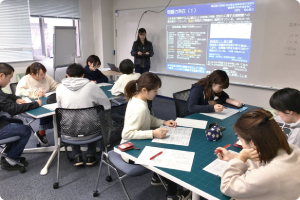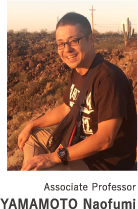Regional Resource Management
Studying Issue Resolution with Effective Use of Diverse Regional Resources
Regional resources are natural, artificial, or cultural resources found in a certain region that are characteristic of the area and have the potential to effect vitalization through their use.
The curriculum in this department guides students to cultivate broad-ranging expertise and research skills concerning agricultural, mountain, and fishing villages, culture and tourism, and sports and health, along with the management skills needed to effectively utilize and create such resources in real-world settings. Students also participate in activities involved with the effective use of regional resources through collaborative engagement with a diverse range of regional stakeholders, including municipality-based activities and companies’ internal and external activities.
This practical educational approach serves to cultivate human resources who will undertake the challenges of promoting agricultural, mountain, and fishing villages; identifying and effectively utilizing regions’ cultural resources; providing stimuli to sports activities; and promoting the maintenance and improvement of health.
Agricultural, Mountain, and Fishing Villages Management Course
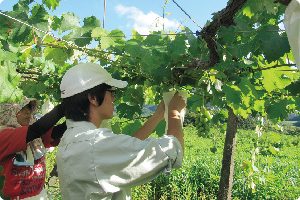
Areas with agricultural, mountain, and fishing villages are increasingly facing the declining and aging of their populations, waning of primary industries, and the weakening effects these factors have on village settlements and regional communities. Such areas will benefit from the arrival of flexible human resources equipped to build new regional communities.
Students in this course engage in study involving the effective use of natural resources and agricultural, forestry, and marine resources with a focus on areas with agricultural, mountain, and fishing villages, the discovery of skills and wisdom rooted in lifestyles and daily activities, and topics including “Reevaluating regional communities,” “Interaction between cities and agricultural, mountain, and fishing villages,” and “Utilizing regional resources in entrepreneurship.”
The course provides a particular focus on long-term on-site practical training and fieldwork to foster students’ on-site practical implementation skills and cultivate human resources equipped to help provide support for the agricultural, mountain, and fishing villages of the future.
Cultural Resource Management Course
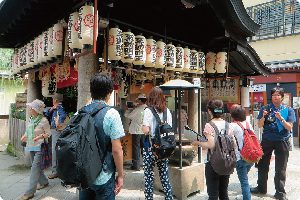 Approaches to community development that involve bringing to light various cultural resources of the region and incorporating such cultural elements in response to issues occurring in cities and agricultural villages have come to attract attention. In regional communities such as these, there is demand for regional promotion and tourism promotion efforts undertaken in conjunction with the preservation, succession, and utilization of regional culture.
Approaches to community development that involve bringing to light various cultural resources of the region and incorporating such cultural elements in response to issues occurring in cities and agricultural villages have come to attract attention. In regional communities such as these, there is demand for regional promotion and tourism promotion efforts undertaken in conjunction with the preservation, succession, and utilization of regional culture.
Three fields of study are offered to students in this course: Cultural Heritage, concerning the discovery and preservation of historic cultural heritage; Tourism Culture, covering the utilization of culture from cities, agricultural villages, and other communities in tourism; and Community Development, dealing with the incorporation of regional culture in community development. Students in each field participate in practical training, such as off-campus fieldwork, to equip themselves with practical implementation skills.
Sports and Health Management Course
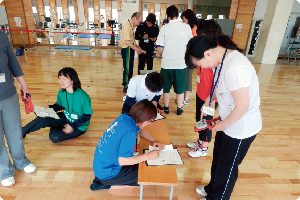
Ehime Prefecture is being confronted with a range of regional issues, including a decreasing population, declining birthrate, aging population, and fewer opportunities for residents to improve physical fitness and pursue health-promoting activities. Accordingly, sports can be anticipated to provide a first step in revitalizing communities in the region.
Students in this course engage in the development of a diverse range of activities, including lectures and practical courses offered for all regional residents from children to the elderly and those with disabilities, taking part in sports projects conducted by municipalities, and so on. Participation in these activities equips students with practical skills—specifically, practical sports leadership skills, management skills to craft healthy lifestyles for people, and servant leadership skills—involving the identification and resolution of issues.
Major Research Themes
Agricultural, Mountain, and Fishing Villages Management Course:
Cultural Resource Management Course:
Sports and Health Management Course:
|
|

